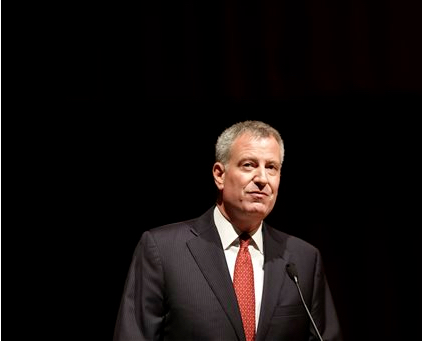Despite strong economy, de Blasio unveils cautious budget

Despite the city’s roaring economy, Mayor Bill de Blasio outlined a cautious budget, one that largely forgoes splashy and expensive new projects and instead focuses on funding previously announced programs that further his administration’s stated mission to combat inequality.
The $82.1 billion preliminary budget, which de Blasio unveiled Thursday at City Hall, included a modest 0.5 percent spending increase and set aside billions of dollars for the city’s reserves in case of an upcoming economic downturn. And while the city has added 200,000 new jobs since January 2014 and the economy’s strength allowed the city to reap almost $1 billion more in revenue than the administration predicted, troubling fiscal signs elsewhere mandate a wary approach, de Blasio said.
“Despite our discipline, we’re facing some major challenges,” said de Blasio, a Democrat beginning his third year in office. “We in New York City have to protect ourselves.”

Brooklyn Boro
View MoreNew York City’s most populous borough, Brooklyn, is home to nearly 2.6 million residents. If Brooklyn were an independent city it would be the fourth largest city in the United States. While Brooklyn has become the epitome of ‘cool and hip’ in recent years, for those that were born here, raised families here and improved communities over the years, Brooklyn has never been ‘uncool’.